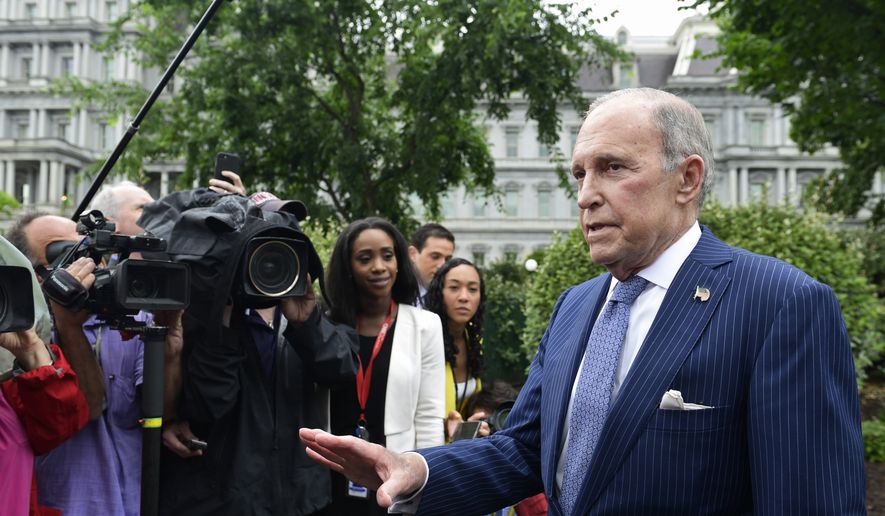
Larry Kudlow[1], director of the president’s National Economic Council, said Wednesday that overhauling the approval process for foreign investment in the U.S. would better protect America’s “technological family jewels.”
President Trump’s move to back an overhaul of the more than 40-year-old Committee on Foreign Investment in the United States, or CFIUS, which reviews investments for security threats was widely viewed as a softer approach to China.
“It is not meant to be harder or softer. It is going to be very comprehensive and very effective at protecting our technological family jewels in the United States,” Mr. Kudlow[2] said on Fox Business Network’s “Varney & Co.”
It was Mr. Kudlow[3]’s first TV appearance since he suffered a heart attack June 11. He said he “felt great.”
“To quote one of my hero’s, Mark Twain, ‘Rumors of my demise were greatly exaggerated,’ ” he said.
Beyond CFIUS, the administration continues to press China on its unfair trade practices, including the forced transfer and theft of American intellectual property, Mr. Kudlow[4] said.
He added that the next move was up to China to avoid a tariff trade war, with the U.S. set to impose tariffs on more than $450 billion worth of Chinese goods July 6.
The U.S. has not received a satisfactory response from China on the tariff and trade issues, Mr. Kudlow[5] said.
The forced transfer of technology from U.S. companies doing business in China was a result of Beijing’s policy that prohibits foreign companies from owning more than 49 percent of a business in China....
China has talked about reforming that policy but has yet to take action.“If they do, that will go a ways toward solving a major problem of the forced transfer of technology — our family jewels,” Mr. Kudlow[6] said.On the overhaul of CFIUS, which is in legislation working its way through Congress, Mr. Kudlow[7] said the U.S. would remain a free and open investment system.“None of that is going to change, but we must be on guard in the modern world — there are some bad actors out there, no question about it,” he said. “But we can live with this. We are not clamping down. We are not ending foreign investment in the U.S.A. This is just a little bit of updating and modernization.”
